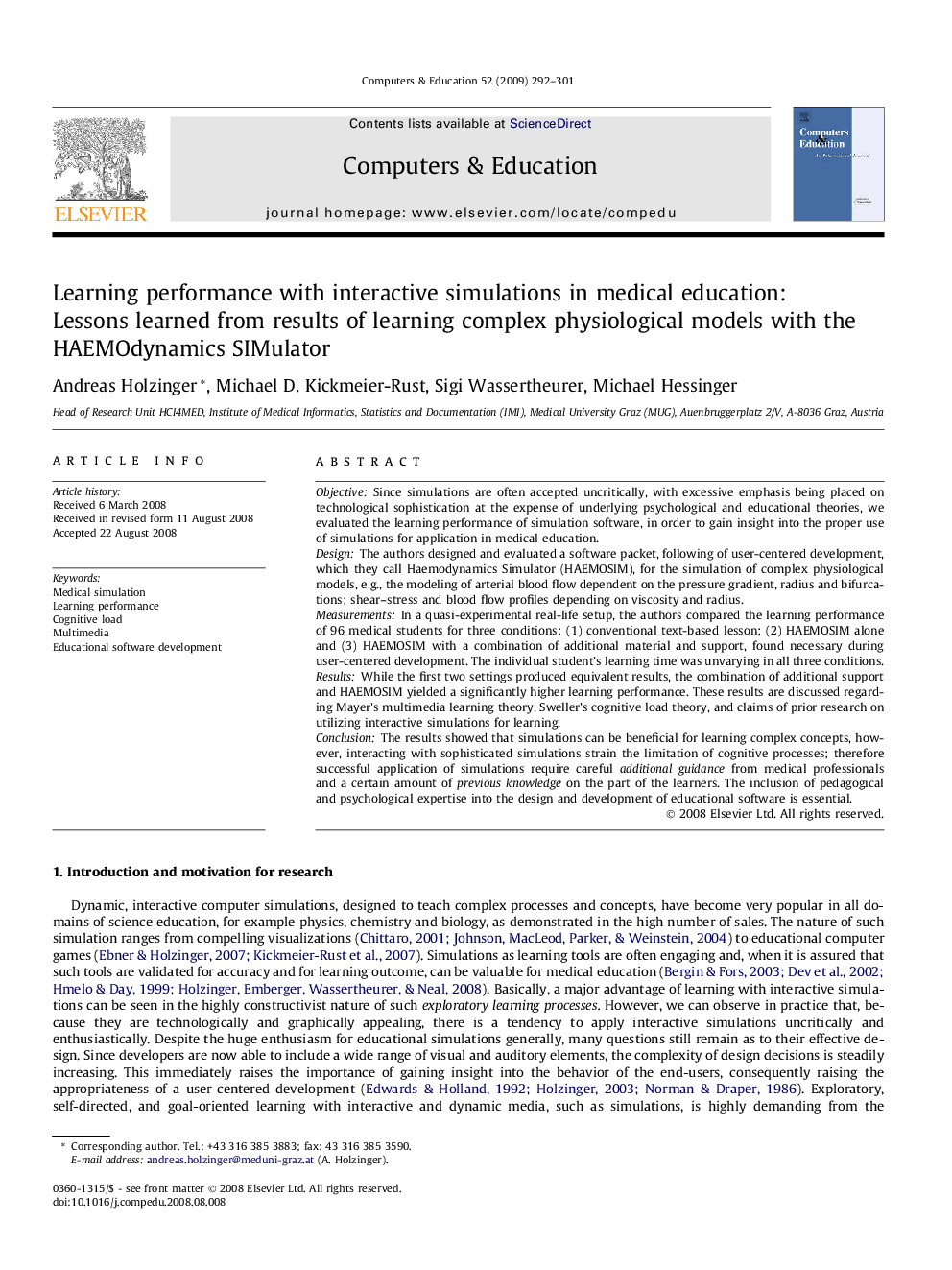| کد مقاله | کد نشریه | سال انتشار | مقاله انگلیسی | نسخه تمام متن |
|---|---|---|---|---|
| 349060 | 618211 | 2009 | 10 صفحه PDF | دانلود رایگان |

ObjectiveSince simulations are often accepted uncritically, with excessive emphasis being placed on technological sophistication at the expense of underlying psychological and educational theories, we evaluated the learning performance of simulation software, in order to gain insight into the proper use of simulations for application in medical education.DesignThe authors designed and evaluated a software packet, following of user-centered development, which they call Haemodynamics Simulator (HAEMOSIM), for the simulation of complex physiological models, e.g., the modeling of arterial blood flow dependent on the pressure gradient, radius and bifurcations; shear–stress and blood flow profiles depending on viscosity and radius.MeasurementsIn a quasi-experimental real-life setup, the authors compared the learning performance of 96 medical students for three conditions: (1) conventional text-based lesson; (2) HAEMOSIM alone and (3) HAEMOSIM with a combination of additional material and support, found necessary during user-centered development. The individual student’s learning time was unvarying in all three conditions.ResultsWhile the first two settings produced equivalent results, the combination of additional support and HAEMOSIM yielded a significantly higher learning performance. These results are discussed regarding Mayer’s multimedia learning theory, Sweller’s cognitive load theory, and claims of prior research on utilizing interactive simulations for learning.ConclusionThe results showed that simulations can be beneficial for learning complex concepts, however, interacting with sophisticated simulations strain the limitation of cognitive processes; therefore successful application of simulations require careful additional guidance from medical professionals and a certain amount of previous knowledge on the part of the learners. The inclusion of pedagogical and psychological expertise into the design and development of educational software is essential.
Journal: Computers & Education - Volume 52, Issue 2, February 2009, Pages 292–301